City Opera’s “Stonewall” premiere puts human faces on gay rights history
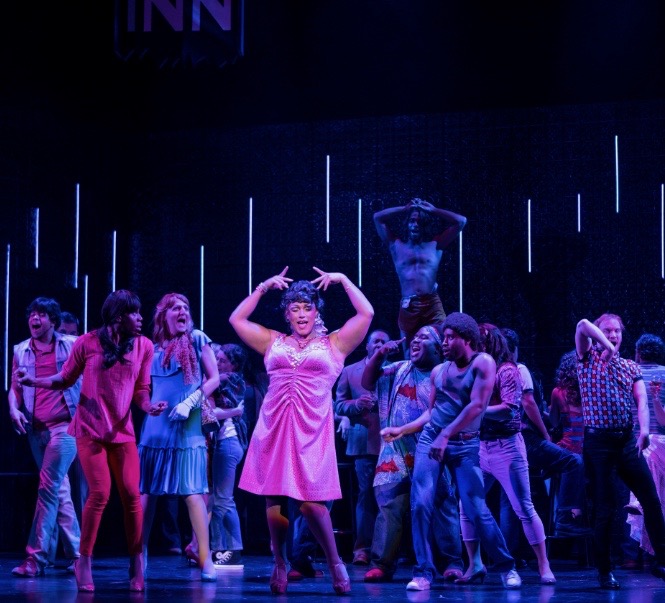
“Stonewall” was presented in its world premiere by New York City Opera Friday night. Photo: Sarah Shatz
Acts of courage, high drama, and a turning point in history. How did we go fifty years without an opera about the Stonewall Inn?
The New York City Opera remedied that omission Friday night, with the world premiere of Stonewall, Iain Bell’s and Mark Campbell’s eagerly-awaited evocation of that seismic event. The debut took place just days before the 50th anniversary of the historic confrontation between gay clubgoers and police.
In just three scenes spanning 75 minutes in the Rose Theater of Jazz at Lincoln Center, an excellent cast of singer-actors enlivened Campbell’s tightly focused libretto and Bell’s serviceable score, with conductor Carolyn Kuan providing subtle support from the pit.
Director Leonard Foglia’s production had an appropriately seedy look, the dark panels of Riccardo Hernandez’s set recalling the walls of the historical mafia-run bar, which were painted black to conceal fire damage.
The costumes, astutely designed by David C. Woolard, played an especially important role in this production, as the only visual link (other than Brittany Rappise’s wigs and makeup) to the everyday lives of the characters who converged on the bar that fateful night.
And there were lots of characters—a must in any Stonewall opera, since the historic event is remembered not for any charismatic individual leaders but as a spontaneous, collective uprising of marginalized people who had had enough of socially sanctioned discrimination and mistreatment.
Campbell’s three-scene scheme was simplicity itself: introduce the bar’s patrons one at a time, mostly in monologues about their troubles with family, work, or the law; bring them all together in the climactic scene at the bar; and take leave of them in a brief, morning-after epilogue, as they gaze into an uncertain but hopeful future.
Composer Bell’s prowess in individual characterization and counterpoint enabled him to draw striking musical portraits, then weave them together in ensembles ranging from four singers to the full cast, as the characters’ common destiny took shape.
The bar scene began delightfully, the happy dance-floor chaos organizing itself into a nifty hustle choreographed by Richard Stafford. On the other hand, the cops’ sudden raid seemed to happen in slow-motion, with a lot of singing about it instead of presenting it. The historically-accurate checking of IDs and separating the patrons into groups of bar staff, male patrons, female patrons, and “whatever” patrons, consumed a lot of precious time to little dramatic effect.
But matters came to a dramatic head as the other patrons joined the lesbian Maggie in defiance, then the set’s walls pushed back to admit the street scene of the crowd in full riot–with fast and scary fight choreography by Rick Sordelet and Christian Sordelet–culminating in a full-cast scrum surging downstage to a breathtaking, fists-raised freeze and blackout.
The audience, which had witnessed some big numbers to that point in respectful, non-operatic silence, burst into gleeful applause at this fortissimo finish.
The brief closing scene found the principal characters awaiting daybreak in the shattered bar, recalling (somewhat in wonder) their moment of resistance. As the ensemble of bar patrons drifted in, a richly worked final chorus (“What happens now?…Much to be done.”) brought the opera to a close, and a warmer, more thoughtful applause this time.
Campbell’s libretto made clear that there were as many paths leading to the Stonewall as there were people in it. While depicting a movement without leaders, Campbell took the liberty of focusing two dramatic turning points—the initial resistance to the cops in the bar, and later rallying the crowd outside—on the fictional character of Maggie, an assertively butch lesbian who works in her dad’s hardware store in Inwood, the remotest end of uptown Manhattan.
Although she can defend herself with sarcasm and her fists, Maggie isn’t immune to the tension at home and crude insults on the subway, and on Friday mezzo-soprano Lisa Chavez mingled swagger and vulnerability with a strong vocal presence to anchor the production.
Brian James Myer brought a sturdy baritone to the role of Carlos, grieving the loss of his teaching job in a Catholic school because of his “lifestyle.” Tenor Andrew Bidlack captured the pathos of Andy, disowned by his family in Buffalo, living on the streets and turning tricks for $10 (which, in 1969, would pay for two pizzas, a shower at the Y, and Stonewall’s $3 admission charge).
With insinuating baritone and wiry physique, Joseph Beutel embodied Troy, the go-go dancer and straight guy who is not above a hotel-room assignation with the likes of family man Edward from Connecticut, earnestly sung by baritone Justin Ryan, for blackmail purposes. Troy splits the proceeds with the mafia-connected bar manager Sal (a cynical, businesslike performance by bass Michael Corvino).
Soprano Jessica Fishenfeld took wing in coloratura as the nice Jewish girl Leah, describing how she ecstatically discovered her lesbian self at Bryn Mawr, then survived the “cure”—aversion therapy and electroshock treatments ordered by her parents.
Alto Liz Bouk was willowy of voice and body in the role of Sarah, the lonely transsexual, celebrating the first anniversary of her transition at home with a candle in a Hostess cupcake before heading to the Stonewall for a little companionship.
Drag queens are invariably the scene stealers, and this show had two fine ones in tenor Jordan Weatherston Pitts as Renata and the robust baritone Rocky Eugenio Sellers as Valerie. Wearing a shower of blonde curls, the brawny African-American Sellers played up gender and racial contrasts to the hilt.
Pitts, on the other hand, was all delicious ambiguity as the humble civil servant turned bewitching Renata. Latina or Italian? A man sending up a woman’s mannerisms, or a convincing, alluring woman in a tight dress? The orchestra’s string tremolos and glockenspiel created a nimbus of mystery around Pitts’s arresting performance as he/she prepared for the ball—I mean, the bar.
And speaking of arresting, Marc Heller as deputy police inspector Larry led his squad with an authoritative ringing tenor, barking orders and insults with equal relish, only to be stunned into near-silence when the usually docile “faggots” pushed back.
History and the gay rights movement had a lot riding on this opera. Composer Bell, librettist Campbell, and the performers gave a lot back.
Stonewall repeats 2 p.m. and 8 p.m. Saturday, and 7:30 p.m. Thursday and Friday, at Jazz at Lincoln Center’s Rose Theater, Broadway at 60th Street. jazz.org; 212-721-6500.
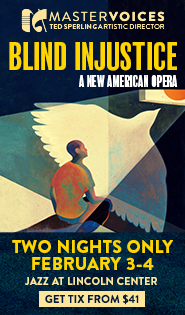
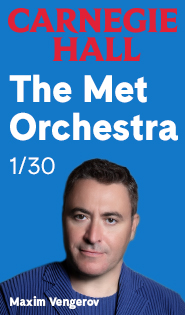

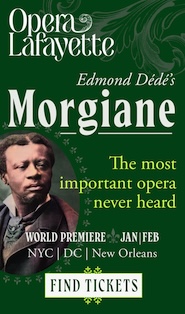

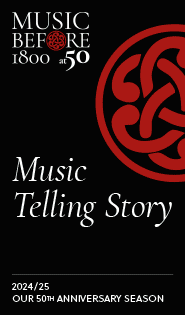
Posted Jun 22, 2019 at 8:50 pm by Gary
An incredibly delightful show. The entire performance was entirely constructive. I brought a straight friend that enjoyed it just as much.
Unfortunately, there were many seats empty. A real loss for the gay community that did not support this brilliant opera.
But a warm thank you for the group and writers and producers.
Posted Jun 28, 2019 at 1:41 pm by Topher Williams
Full house Thursday night, anticipating a very fine evening and they (we) got it! There were many laughs in the libretto (those poor people from Buffalo!), etc. Many poignant moments. The arrival of the cops in the club was a bit static in staging and timing, but the outside “riot” was effective as was the final tableau of the quiet after the storm. The final choral music could have soared a bit more for a mesmerizing effect.
A lot to celebrate in this NYCO premiere.
Topher